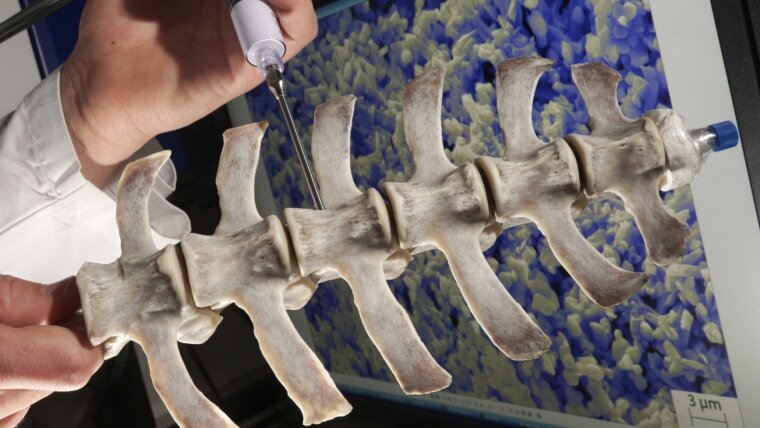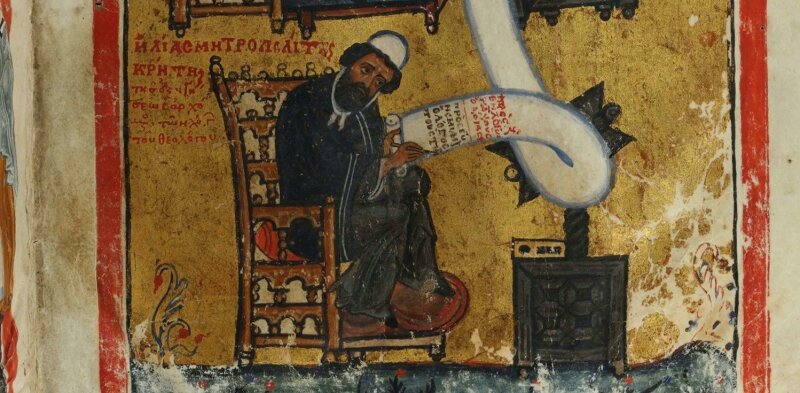
- Light
- Life
- Liberty
- Research
Published: | By: Axel Burchardt
The Friedrich Schiller University Jena, Germany will receive two new research training groups, the German Research Foundation (DFG) announced on 9 May 2022. The research training groups, which will officially start at the beginning of 2023, are expected to receive funding of over 12 million euros over the next five years. Jena scientists are also involved in another research training group, the second phase of which has been approved. The research training groups will investigate questions of material science, philology and intellectual history, and ecology.
"It is a great success to directly receive two new research training groups in this competitive procedure of the DFG," says Prof. Dr Georg Pohnert, Vice President for Research at the University of Jena. This is proof of the expertise and extraordinary commitment of all the researchers involved in the proposals. The University's strategy of focusing its research on the themes of "Light, Life, Liberty"External link is thus once again confirmed. "The new research training groups fit perfectly with our profile lines and are characterised by their current interdisciplinary and viable topics and the convincing concepts. This leads to a gain for research at the University of Jena and the participating doctoral students, postdocs and established researchers," Pohnert is convinced.
Materials-Microbe-Microenvironment
Researchers from physics, chemistry, biology, clinical medicine and microbiology at the University of Jena and the University Hospital (UKJ) are involved in the new Materials Science and Medicine Research Training Group (GRK) 2723 on material-microbe-microenvironments. They want to develop a customised platform of antimicrobial biomaterials to better prevent biomaterial-associated infections, such as those that can occur in bone implants. Until now, such biomaterial-associated infections have been treated by surgical procedures in combination with long-term antibiotic therapy. In order to reduce the use of antibiotics and, above all, the burden on the patients affected, the RTG "Materials-Microbe-Microenvironment: Antimicrobial biomaterials with tailored structures and properties" (M-M-M) aims to develop a material platform based on different nano-structured materials and transfer it to clinical use. An important role is played by advanced optical methods that help to elucidate complex, multifactorial interaction mechanisms of biomaterials, cells and microbes. The corresponding equipment and the necessary know-how are available in Jena.
"The research necessary for the success of the project will be dealt with in six interdisciplinary tandem projects with two doctoral students each, who will deal with complementary material and medical science aspects in each project, supervised by a tandem of materials science and medicine," explains materials expert Prof. Dr Klaus Jandt, who is the spokesperson of the new research training group together with medical scientist Prof. Dr Bettina Löffler. An interdisciplinary qualification programme for the doctoral students is a fundamental component of the research training group. "M-M-M forms a joint communication platform for materials science and medicine that promotes understanding of the other discipline and thus enables creative approaches and solutions," says Prof. Löffler, describing the benefits for research and the young researchers involved.
Elias of Crete writes a commentary on Gregory of Nazianzus.
Image: Universitätsbibliothek Basel, AN I 8, fol. c, DetailAutonomy of heteronomous texts in antiquity and the Middle Ages
The new Research Training Group 2792 "Autonomy of Heteronomous Texts in Antiquity and the Middle Ages" focuses on texts that consciously enter into dependence on older texts in order to pass on and update their contents in a new form. Such "heteronomous texts" include commentaries, sermons, retellings, paraphrases and much more. They occur in all classical disciplines: in philosophy and literature, jurisprudence and medicine, as well as in the theologies of Judaism, Christianity and Islam. "Our preliminary work has shown that the authors of such texts were often perceived as 'dwarfs', but in a certain sense climbed onto the shoulders of their giant predecessors in order to be able to see further than they did," reports the spokesperson of the group, theologian Prof. Dr Katharina Bracht. Through the selection and processing of their templates, they develop an autonomy that is peculiar to them. "That's why we are researching these texts – in contrast to what has often been the case so far – for their own sake and we are asking: How do cultural transmission and renewal take place with the help of texts in antiquity and the Middle Ages? So we are not interested in the giants, but in the – supposed – dwarfs and their farsightedness," explains Bracht.
In spite of its past-oriented research, the topic of the research training group has the present in view: The PhD students are familiar with the production of heteronomous texts in the sense of a cultural technique, as it is of current relevance today in didactics (texts in textbooks) and the internet (patchwork texts such as Wikipedia and the like). "From the knowledge of the autonomy of ancient and medieval heteronomous texts, the promoters can use structural analogies to better understand how reference to ancient texts is used today to seek orientation for our multipolar society, which is unsettled by climate crisis, pandemic and war," says philosopher Prof. Dr Matthias Perkams, who together with Prof. Bracht forms the dual leadership of the research training group. The future doctoral students, who will illuminate the foundations of European thinking on freedom and autonomy at the place where Schiller and Hegel worked, will be supervised by eleven doctoral supervisors from eleven academic disciplines at the University of Jena.
The role of tree-tree interactions
The DFG also approved the second funding phase of the International GRK 2324 "Tree Diversity Interactions: The role of tree-tree interactions in local neighbourhoods in Chinese subtropical forests"External link. The universities of Halle-Wittenberg, Jena and Leipzig and the University of the Chinese Academy of Sciences (UCAS) are participating in this research training group. On the German side, the PhD students are based at the German Centre for Integrative Biodiversity Research (iDiv) Halle-Jena-Leipzig. The aim of the research is to better understand the interactions of trees and shrubs in forests.
Research Training Groups
Research Training Groups are university institutions for the promotion of young researchers, which are funded by the DFG for a maximum of nine years. The focus is on the qualification of doctoral candidates within the framework of a thematically focused research programme and a structured qualification concept. The aim is to prepare doctoral students intensively for the complex “job market of science" and, at the same time, to support their early scientific independence.
Am Klinikum 1
07747 Jena Google Maps site planExternal link
Puschstraße 4
04103 Leipzig Google Maps site planExternal link
